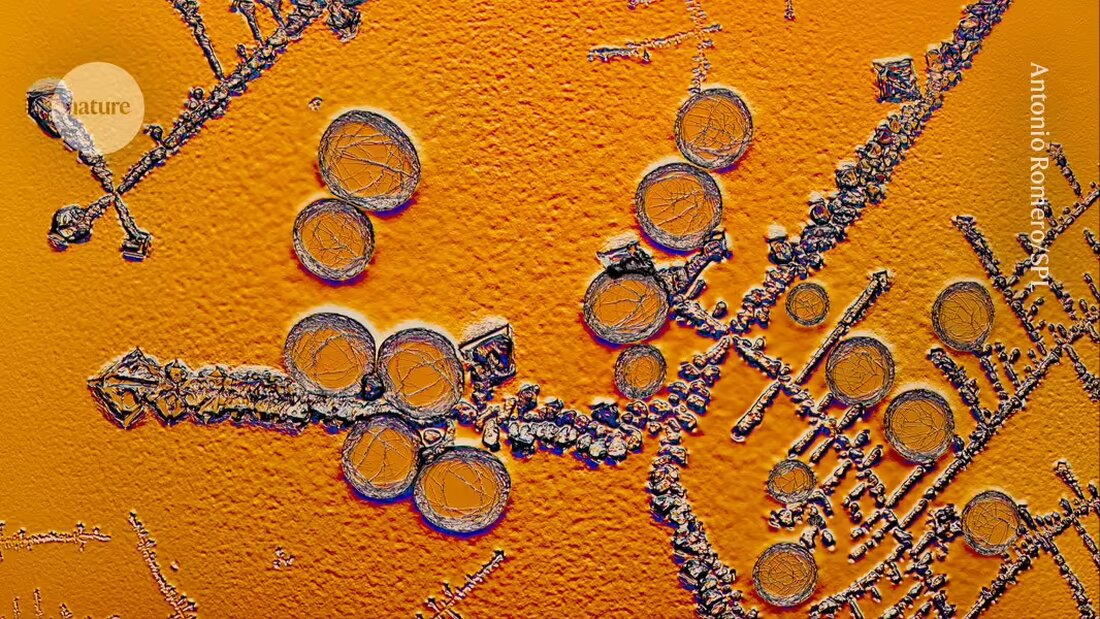Intelligent Insulin Therapy: Prevents blood sugar spikes and life-threatening lows in diabetes
Scientists are developing 'smart' insulin variants that automatically regulate blood sugar levels and prevent extreme fluctuations.

Intelligent Insulin Therapy: Prevents blood sugar spikes and life-threatening lows in diabetes
Scientists have developed a new form of insulin that can automatically turn on and off depending on glucose levels in the blood. Animals have this 'smart' insulin 1 Effectively lowers high blood sugar levels and at the same time prevents the levels from falling too low.
For people with diabetes Controlling blood sugar levels is a crucial but challenging task. Insulin keeps blood sugar under control and helps prevent the many long-term complications associated with high blood sugar levels, such as cardiovascular disease, chronic kidney disease, stroke and blindness. A large proportion of the estimated 422 million people with diabetes worldwide require insulin injections.
A surplus of insulin However, it can cause blood sugar levels to fall too low - a condition called hypoglycemia, which puts people at risk for serious complications such as loss of consciousness, seizures and even death. Even mild or moderate hypoglycemia can cause anxiety, weakness, and confusion. People with diabetes - especially those with Type 1 diabetes People who always need to inject insulin — can experience drops in blood sugar levels several times a week, says Michael Weiss, a biochemist and physician at Indiana University in Indianapolis. “It really affects the quality of life.”
For decades, researchers have been working to develop a system that automatically adjusts insulin activity depending on the amount of glucose in a person's blood. One common approach has been to develop a compound that releases insulin when glucose concentrations rise. However, a significant disadvantage of this method is its irreversibility - once insulin is released, it can no longer be retained.
A sugar-sensitive switch
The latest study, published today in Nature, gets around this problem by modifying insulin itself with sugar-sensitive components. Rita Slaaby, principal scientist at pharmaceutical company Novo Nordisk in Bagsværd, Denmark, and her colleagues have developed an insulin molecule with a switch that turns its activity on and off in response to glucose levels in the blood. This switch consists of two parts: a ring-shaped structure known as a macrocycle and a glucoside, a molecule derived from glucose. When blood sugar levels are low, the glucoside binds to the ring and keeps insulin in a closed, inactive state. However, when blood glucose levels rise, the sugar displaces the glucoside and changes the shape of insulin, causing it to activate.
The researchers tested the insulin molecule, which they called NNC2215, in pigs and rats that had received glucose infusions to simulate the effects of diabetes. They found that NNC2215 was as effective at lowering blood sugar levels as regular human insulin when injected into the animals - and that it was able to prevent the drops in blood sugar levels that occurred with traditional insulin treatment. "This is a very good study, well designed - they did all the experiments necessary to validate that this works," says David Sacks, a clinical chemist at the National Institutes of Health in Bethesda, Maryland. “There is certainly encouraging evidence that this approach is worth pursuing.”
The modified insulin is the first to specifically target glucose, Sacks says. Weiss and his colleagues previously demonstrated that an insulin molecule with a similar type of molecular switch was sensitive to another sugar molecule, fructose. 2
Some questions remain unanswered about the newest molecule. For one thing, the study looked at NNC2215's activity across a broader range of blood sugar levels than is typically seen in people with diabetes, so future studies should show that the insulin can also be effective over a narrower range, Sacks says. Other considerations include the safety and cost of this molecule, notes Zhen Gu, a biomedical engineer at Zhejiang University in Hangzhou, China. (Gu's team is also developing a sugar-sensitive insulin molecule 3.)
A spokesperson for Novo Nordisk explains that while this study provides evidence of NNC2215's sugar-sensitive properties, further research to optimize the molecule remains ongoing.
Several other smart insulin drugs are in development, Weiss says, including one his own team is designing using a similar approach. Ultimately, the goal is to create a range of smart insulin medicines to enable doctors to individualize therapies for their patients, he adds.
-
Hoeg-Jensen, T. et al. Nature https://doi.org/10.1038/s41586-024-08042-3 (2024).
-
Chen, Y.-S. et al. Proc. Natl Acad. Sci. USA 118, e2103518118 (2021).
-
Zhang, J. et al. Nature Biomed. Closely. https://doi.org/10.1038/s41551-023-01138-7 (2023).

 Suche
Suche
 Mein Konto
Mein Konto
